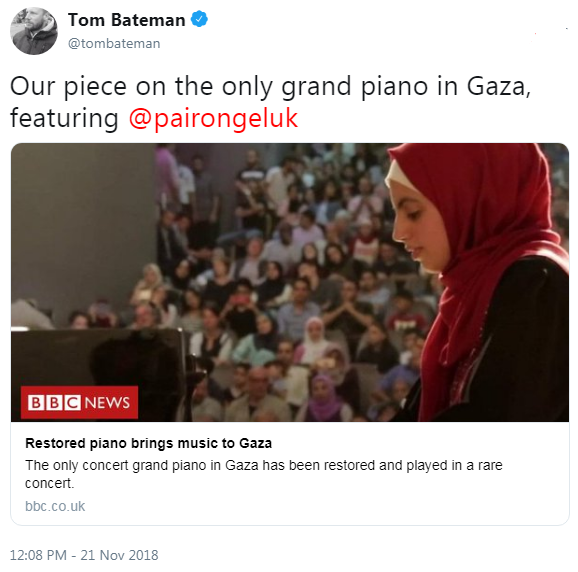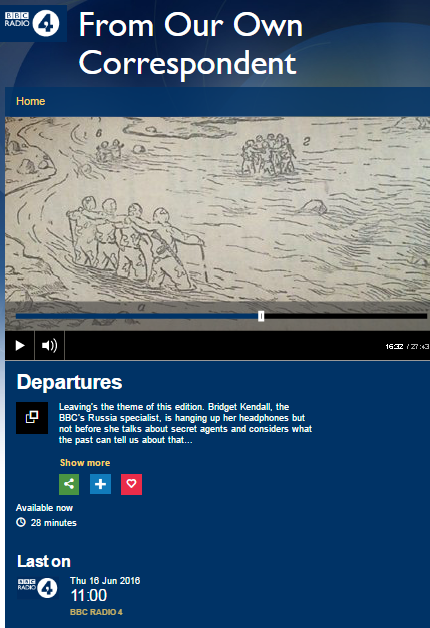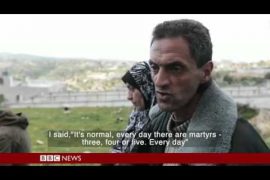“Context: The circumstances that form the setting for an event, statement, or idea, and in terms of which it can be fully understood.”
On November 21st the BBC’s Jerusalem-based correspondent Tom Bateman used Twitter to promote a filmed report concerning a restored piano in the Gaza Strip which had been published on the BBC News website that morning.

Previously Bateman had produced an audio report on the same story that was aired on BBC Radio 4 and BBC World Service radio earlier in the month. Three and a half years before that, the BBC had told the story of the same piano’s restoration on the BBC News website, on BBC Radio 4, on BBC World Service radio and on the BBC News TV channel.
Bateman’s latest report is titled “Gaza Strip’s only concert grand piano makes music again“.
“There is only one concert grand piano in Gaza and it has been played in a rare public performance after being restored.
The work, first documented by the BBC three years ago and now completed, was led by a charity that supports musicians in areas of conflict.”
Most of the report tells the piano’s story and depicts the concert that is its subject matter. However, the BBC also found it necessary to provide viewers with what was apparently supposed to be context.
“Gaza is blockaded by Israel and Egypt, who cite security concerns.” [emphasis added]

As was noted here when Bateman made a similar statement in his earlier audio report, this is by no means the first time that BBC audiences have heard that ‘Israel says’ portrayal of the reasons why it was necessary to introduce a ban on the entry of weapons to the Gaza Strip and controls on the import of dual-use goods.
Obviously BBC reporters such as Tom Bateman know full well that the context to Israel’s policy is the Palestinian terrorism which increased after Hamas’ violent take-over of the territory in 2007 and yet we nevertheless continue to see BBC journalists whitewashing that terrorism (even in a week following unprecedented terror attacks against Israeli civilians) by repeatedly describing the actions taken to counter it in terms of a ‘narrative’.
Viewers were also told that:
“Live music is rare in Gaza, which is run by the Islamist group Hamas”

No effort was made to explain to audiences the connection between the decline in live music events (and other social freedoms) and the fact that the Gaza Strip was violently taken over by an Islamist faction over a decade ago.
Although in both the above examples the BBC has ostensibly ticked boxes by providing audiences with background information relevant to the story, that ‘context’ is actually nothing of the sort. Rather than providing the full range of information required for proper enhancement of audience understanding, in both cases the BBC elected to skirt around ‘sensitive’ topics: Hamas’ terrorism and Hamas’ repression of the people who live under its extremist rule.
Related Articles:
BBC’s Bateman portrays counter-terrorism as a ‘narrative’




